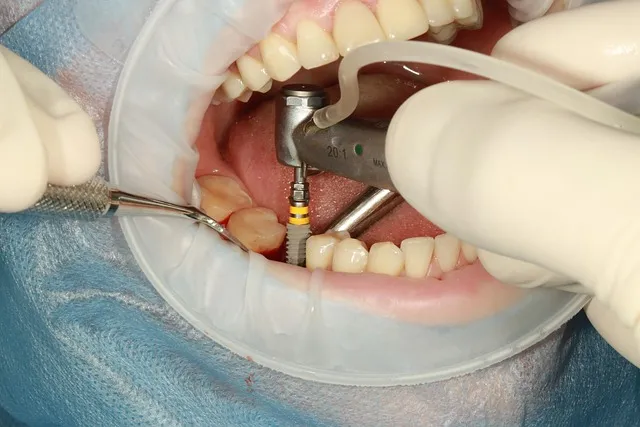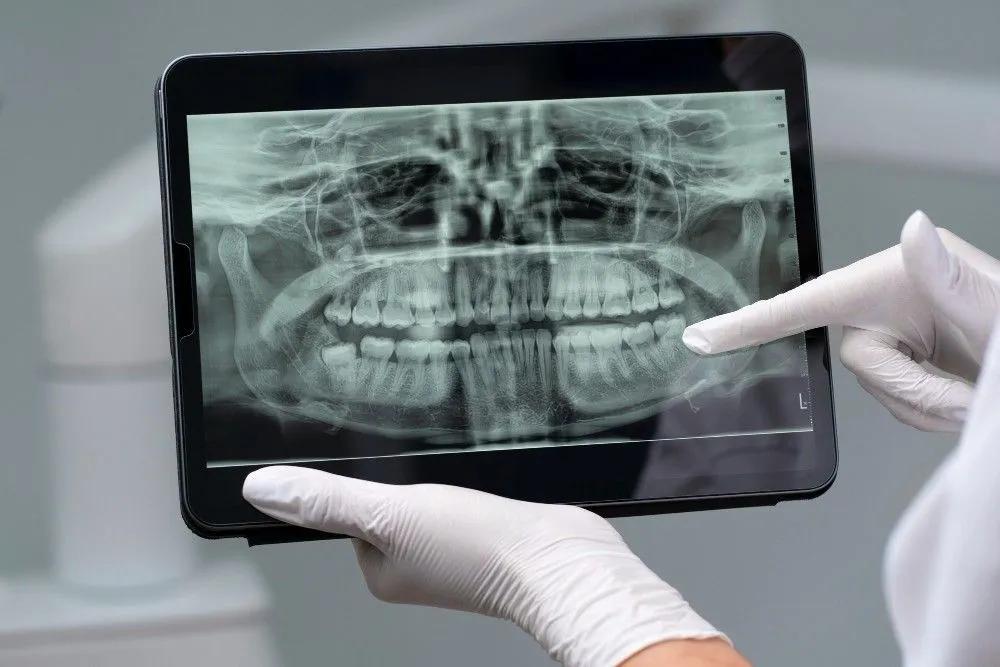Applying Vicks Vaporub to a tooth is unsafe. It can irritate oral tissues and cause toxicity if swallowed. Safer relief options include clove oil, saltwater rinse, and dental treatment. |
Tooth pain has a way of showing up at the worst possible time. Late at night. Middle of a busy week. Some reach for home remedies, even the jar of Vicks Vaporub sitting on the shelf.
The idea sounds tempting, something cooling, soothing, and quick. But here’s the question everyone’s been searching for: Can you put Vicks on your tooth? Let’s look closely before trying something that might do more harm than help.
Can You Put Vicks on Your Tooth?
The short and clear answer is no. Applying Vicks inside your mouth or on a tooth isn’t safe. This product is made only for external use. The label says it clearly, For external use only warning. Still, surveys indicate a majority belief among millennials that it can calm sharp tooth pain. The cooling menthol and camphor give that illusion.
But science tells another story. Both menthol and camphor can cause oral mucosa irritation when used inside the mouth. They may trigger burning, numbness, or even chemical inflammation. In fact, reports from poison control show that as little as 2 grams may cause serious toxicity; 4 grams can be fatal if ingested. A 2023 pediatric case documented a 2-year-old female who consumed about 66 mg/kg of camphor from Vicks and had tonic-clonic seizures within an hour.
That alone is reason enough to stop the experiment. Vicks is safe only when used externally, on the chest, back, or throat, never on teeth or gums.
Does Vicks Vaporub Work For a Toothache?
Typically, Vicks VapoRub is a mentholated topical ointment rich in menthol, thymol, Camphor, turpentine oil, and many other essential oils. Each ingredient in it has an influential role. Menthol broadens peripheral blood vessels, helps relax the skin, and relieves irritation. Being an antiseptic, thymol prevents gum infection and promotes good oral health. Additionally, turpentine oil is a potent antiseptic and analgesic, effective in treating muscle soreness.
The most common use of Vicks is relieving symptoms of muscle aches, cough, and congestion. However, putting it in sensitive areas, like a tooth, needs careful consideration.
What Is Vicks Vaporub Actually Made For?
Before understanding why Vicks shouldn’t be near your mouth, it helps to know what it’s built for.
Vicks Vaporub was first developed in the late 1800s by pharmacist Lunsford Richardson. It’s meant to ease congestion, cough, and muscle soreness. The formula has remained fairly constant, blending essential oils and medicinal compounds that work on the skin and through inhalation.
Core Ingredients and Their Purpose
Camphor: Used for its cooling and mild numbing effects on the skin.
Menthol: Creates a soothing vapor that clears airways and reduces nasal stuffiness.
Eucalyptus Oil: Acts as a natural decongestant and antibacterial.
Cedarleaf and Nutmeg Oils: Provide anti-inflammatory and aromatic support.
Petrolatum: Serves as a moisturizing base.
Thymol and Turpentine Oil: Contain antiseptic and warming properties.
All these ingredients work well when used on the skin. They’re not designed for internal contact, especially not with oral tissues that absorb chemicals rapidly. So while the aroma feels familiar and comforting, remember, Vicks belongs outside the mouth.
Why People Try Vicks for Tooth Pain
It’s easy to see how this myth started. The strong menthol scent and cool sensation feel like instant pain relief. And with so many social posts about Vicks on toothache “hacks,” it spread fast.
Here’s the real reason behind the confusion. When applied to the skin near the jaw, Vicks produces a mild numbing effect by distracting the nerves around the area. This trick fools the brain into thinking the pain is reduced. But it doesn’t treat what’s happening inside the tooth.
People desperate for relief also confuse Vicks for tooth pain with clove oil, which is safe when diluted and used properly. Online discussions blur those boundaries. And without dental guidance, these experiments continue.
Using Vicks internally can also worsen the issue. The strong menthol vapors irritate soft tissues, leading to swelling and soreness. What feels like “numbing” is actually mild chemical trauma. That’s why experts warn against it.
Look, using Vicks Vaporub on tooth pain might sound harmless, but the mouth absorbs toxins faster than skin does. Ingredients like camphor and turpentine oil can trigger neurological symptoms if swallowed. Even a tiny amount entering an open gum wound can irritate nerve endings.
Simply put, is Vicks safe for a toothache? No. It gives a false sense of comfort but leaves your gums and enamel more vulnerable.
What Happens If You Put Vicks on Your Tooth or Gums?
Applying Vicks on a tooth or gum area might create temporary coolness, but here’s what really happens beneath that surface feeling.
Immediate Reaction
The menthol causes a sharp tingling sensation. Within minutes, burning and dryness follow. This happens because the tissues inside your mouth are thinner than skin. Ingredients like camphor can easily penetrate and disturb mucosal layers.
Short-Term Side Effects
Redness or peeling of gum tissue
Mouth ulcers or blister-like irritation
Foul taste and nausea
Mild swelling in sensitive spots
Long-Term Damage
Constant exposure may stain enamel, cause chronic gum sensitivity, and lead to mouth irritation that lingers for days. Continuous use also risks swallowing traces of Vicks, leading to stomach upset, vomiting, or dizziness.
Toxic Effects
If even a gram or two is accidentally ingested, the body absorbs camphor fast. This triggers nausea, abdominal pain, and in severe cases, seizures. Poison control classifies this as a poison control warning Vicks situation, immediate medical attention is needed.
Safe vs Unsafe Usage
Purpose | Safe Use | Unsafe Use |
Nasal congestion | External chest or back application | Inside the mouth or gums |
Toothache | None | Applying Vicks directly to the tooth |
Pain relief | Massage on muscle areas | Internal use or ingestion |
Whitening | None | Rubbing on the enamel surface |
So, what happens if you put Vicks on your tooth? You get irritation, not healing. That’s why dentists discourage using household ointments in oral care.
Real Causes of Tooth Pain
A toothache rarely comes out of nowhere. The problem usually sits deeper, inside the tooth or gum. Applying anything topical can only hide symptoms, not fix them. True dental pain management begins by understanding what’s causing that ache.
1. Cavities and Decay
Cavities form when bacteria eat through enamel, exposing the nerve. Topical balms cannot reach or disinfect that area. The fix is a proper dental filling or crown.
2. Gum Infections
Inflamed gums often mimic tooth pain. Poor hygiene or lodged food particles trigger this. Here’s where a saltwater rinse for a toothache actually helps: it reduces swelling naturally.
3. Cracked Teeth or Nerve Damage
Biting hard food or grinding teeth may expose dental nerves. Only a dentist can assess if a root canal is needed.
4. Sinus or Jaw Issues
Sometimes the ache isn’t dental at all. Blocked sinuses or TMJ tension radiate as tooth pain. Menthol vapors may ease sinus pressure, but they won’t heal oral tissues.
Ignoring these causes can worsen infections. When unsure, schedule an exam. Don’t rely on Vicks or similar products to mask deeper dental trouble.
Safe Home Remedies for Toothache
Tooth pain is a kind of ache that doesn’t wait for appointments. You feel it, you want it gone, fast. And honestly, while you shouldn’t reach for Vicks, there are a few things at home that can calm it down till you get help. These aren’t magic fixes, but they work when used right.
1. Clove Oil for Tooth Pain
This one’s old-school and still a favorite among dentists for mild cases. Clove oil carries eugenol, a natural numbing compound. Just mix one drop with coconut or olive oil before touching the sore area. Never pour it directly; it’s strong enough to burn gums. The relief is short but real.
2. Saltwater Rinse for Toothache
Simple but effective. A warm saltwater rinse helps clean bacteria and ease swelling. About half a teaspoon of salt in a glass of warm water, swish it gently for thirty seconds. It’s one of those quiet remedies that always earns its place.
3. Cold Compress
Sometimes, pain comes with swelling. Pressing a cold pack near the cheek for a few minutes slows the inflammation and numbs the nerve endings. It’s basic first aid, not a fix, but it helps you breathe again for a bit.
4. Painkillers and Topical Gels
If it’s a sharp, throbbing pain, mild OTC medicine like ibuprofen or acetaminophen can calm it. A small dab of benzocaine gel may help, too. Just remember, these only mute symptoms; they don’t solve the cause hiding inside the tooth.
5. Natural Tricks That Help
Peppermint tea bags or diluted hydrogen peroxide rinses can ease soreness. They’re mild, safe, and something you can manage while waiting for your appointment. Even a soft brush and warm rinse before bed does more good than random “hacks” floating online.
When people ask what to use instead of Vicks for a toothache, this is the list that makes sense. It avoids the risks linked to Vicks camphor menthol safety problems and keeps your mouth safe from irritation. These are not long-term answers, but they buy you comfort till the dentist takes over.
When to See a Dentist
Sometimes pain relief isn’t enough. You need a diagnosis. See a professional if:
Pain lasts more than 48 hours
Swelling extends to the jaw or cheek
You have a fever, bleeding gums, or pus
Pain worsens at night despite medication
Dentists can find hidden decay, infections, or nerve exposure using X-rays. When to see a dentist for a toothache isn’t up for debate; early action prevents big complications.
Final Thoughts
So, can you put Vicks on your tooth? No. It may sound clever, but it’s not worth the risk. The mouth absorbs chemicals quickly, and ingredients like camphor, menthol, and turpentine oil don’t belong there. For short-term comfort, stick with safer toothache home treatment methods. For long-term solutions, trust your dentist.
The next time someone suggests Vicks for oral pain, just remember, it’s made to clear your chest, not cure your cavities.
أسئلة متكررة
What happens when you put Vicks on your tooth?
You can't put vicks on your tooth as they can lead to systemic toxicity. It is mentioned on Vicks packaging that it's only for external use.
Can I use Vicks Vaporub on my teeth for whitening?
No, using Vicks Vaporub on teeth is not recommended for whitening.
What are the side effects of using VapoRub on teeth and gums?
The possible side effects of using Vicks VapoRub on teeth and gums include irritation, sensitivity, and potential damage to the oral tissues due to its strong menthol and camphor ingredients.
Does Vicks help with dental pain?
No scientific study supports that. Vicks only numbs skin nerves; it doesn’t treat dental nerves or infection.
Can Vicks numb a toothache?
It may feel like that for a moment, but it’s irritation, not actual numbing. It can worsen inflammation later.
Can you use Vicks for swollen gums?
No. It can irritate already inflamed tissues. Use cold compresses or antiseptic mouth rinses instead.
What are safe alternatives to Vicks for tooth pain?
Use saltwater rinses, diluted clove oil, OTC pain relievers, or professional dental care for reliable results.
-User-1754380331.png)
كُتب بواسطة







